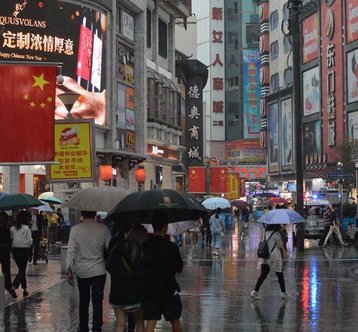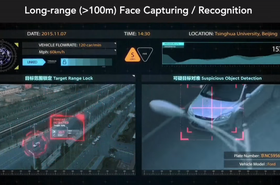The US Commerce Department has placed 28 Chinese public security bureaus and companies on its "Entity List," essentially blocking them from doing business with American firms.
Eight tech companies were among those blacklisted, purportedly over their involvement in human rights violations against Muslim minorities in Xinjiang.
The black list
SenseTime, the world’s most valuable artificial intelligence startup (at least before the ban), the large AI company Megvii, and facial recognition firm Yitu Technologies were among those put on the Entity List. Also listed were surveillance companies Hikvision, Zhejiang Dahua Technology Co, voice recognition company iFlytek, cybersecurity group Meiya Pico and nanotech firm Yixin Science and Technology.
“Specifically, these entities have been implicated in human rights violations and abuses in the implementation of China’s campaign of repression, mass arbitrary detention, and high-technology surveillance against Uighurs, Kazakhs, and other members of Muslim minority groups," the US Commerce Department said in a federal register notice.
US businesses must gain a license to do business with companies on the Entity List. This could have a profound impact on some of the firms, and little affect on others.
Hikvision, one of the world's largest security camera makers, could be among the hardest hit. The ban could have a 10 percent impact on revenue, technology research firm Sanford Bernstein said in a Monday note (via NYT). It would also have to replace the US-made chips in its cameras, Sanford Bernstein said, which could prove challenging, but not impossible. What will be far more difficult, the research firm noted, is the impact it will have on the company's back-end servers that analyze security footage.
For example, the Hikvision Blazer Pro server uses Intel Xeon CPUs, comes with Microsoft Windows 10 pre-installed, along with other US-made features.
“Hikvision strongly opposes today’s decision by the US government and it will hamper efforts by global companies to improve human rights around the world,” the company said in a statement.
“Punishing Hikvision, despite these engagements, will deter global companies from communicating with the US government, hurt Hikvision’s US businesses partners and negatively impact the US economy.”
Also potentially impacted by an inability to acquire US servers is SenseTime, which operates large supercomputers in Chinese cities to handle its facial recognition software. In 2018, the company said it operated a deep learning supercomputing platform with more than 8,000 GPUs, and presented at several events with US GPU giant Nvidia. Qualcomm is also listed as one of the company's partners.
Timing
While China's human rights violations against its Muslim minority population have been well documented, it is important to note that the ban came on the same day as US and Chinese trade negotiations resumed. "Today’s action is unrelated to the trade negotiations,” a Commerce Department spokesperson said.
The ban also follows a similar blacklist against supercomputing company Sugon, microprocessor designer Hygon, and telecoms giant Huawei - all on national security grounds.




